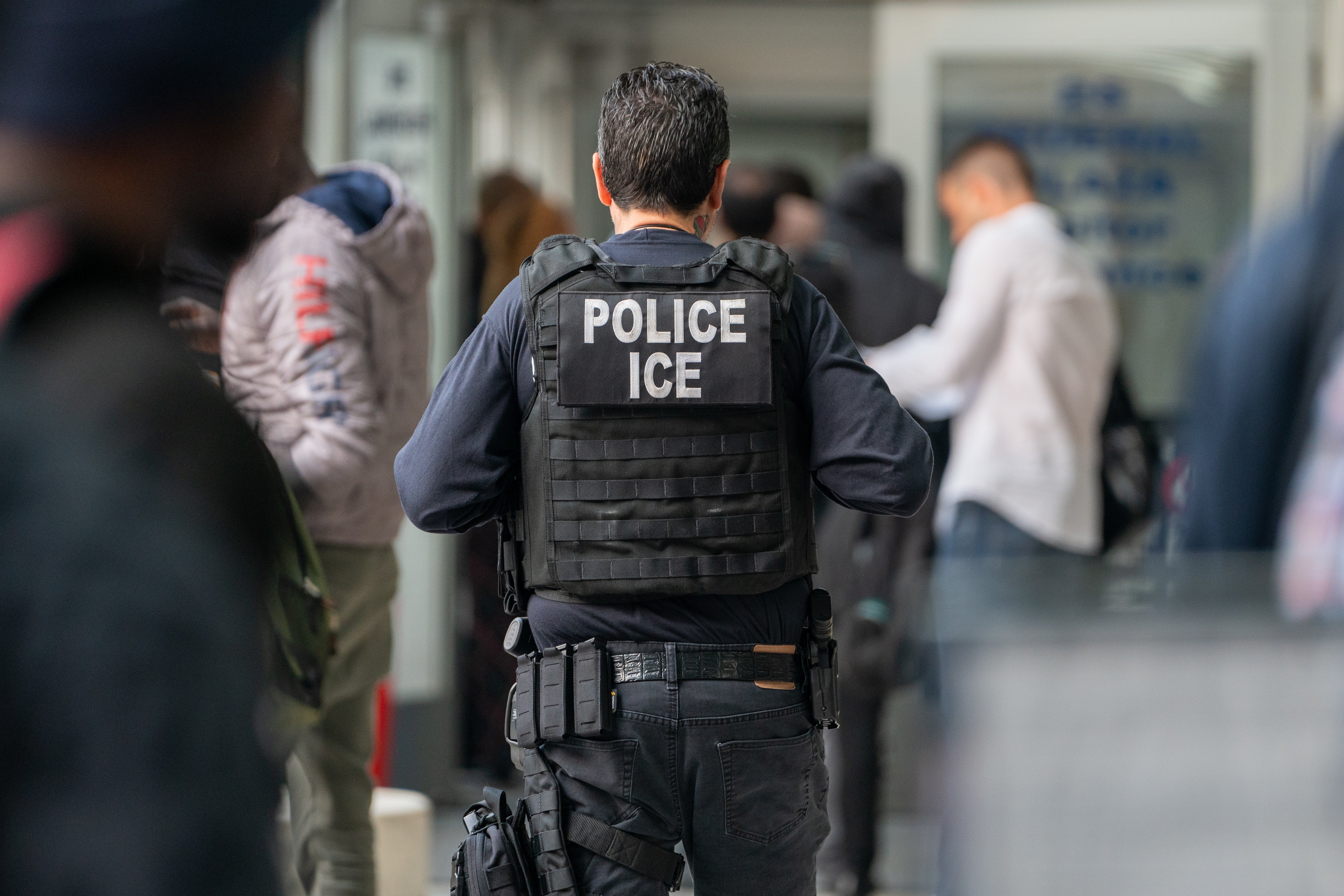A Salvadoran man was about to board a flight from the San Francisco International Airport to self-deport when he was suddenly apprehended by Immigration and Customs Enforcement officials and forced to spend several weeks in jail.
Jeisson Rony Escobar-Valencia, 30, has a criminal record in the United States and was previously deported in 2021 but re-entered the country illegally after being the victim of violent crime in El Salvador – flouting a judge’s removal order.
Understanding that he could be deported, Escobar-Valencia decided he would self-deport in July. After purchasing a ticket to El Salvador, he said goodbye to his family and prepared to start a new life in El Salvador with the hopes his family could join him, his attorney, Elisse Larouche, said in a court filing.
But before he could even set foot on the flight, ICE officers apprehended Esocar-Valencia at the airport, charged him with re-entry of a removed alien and detained him for three weeks before deporting him, again, to El Salvador.
“All Mr. Escobar-Valencia wanted to do was return to El Salvador,” Larouche said in a sentencing memorandum to a judge in Northern California last week.

“Instead, the government intervened to criminally prosecute Mr. Escobar-Valencia, putting him in criminal custody for this case, followed by a prolonged period in immigration custody before he can return to El Salvador,” Larouche added.
In May, the Department of Homeland Security said it would offer undocumented immigrants $1,000 stipend for travel assistance to leave the country voluntarily. Those wishing to participate can notify the U.S. that they intend to self-deport via the CBP Home Mobile App.
It’s just one of the many ways the Trump administration is trying to deport millions of undocumented immigrants from the U.S. – at the behest of President Donald Trump.
However, the option only applies to those without a criminal record.
Escobar-Valencia was convicted of lewd or lascivious acts with a child under 14 years old in 2018. His lawyer said he took a plea deal under the misunderstanding it would protect him from deportation, which it did not.
After serving a three-year-long sentence, Escobar–Valencia was deported to El Salvador but quickly faced physical violence as well as the threat of homicide by MS-13 gang members.
Escobar-Valencia chose to illegally re-enter the U.S. months later. His lawyer said he “understands now that he should not have returned, but at the time, he was in extreme fear and made the wrong and unlawful choice.”
Soon after, in 2021, he served a brief jail sentence for failing to register as a sex offender in California. Then in February 2025, he was arrested again for failing to register as a sex offender.
But it wasn’t until July, when ICE officers discovered Escobar-Valencia, that they chose to arrest and detain him.
Escobar-Valencia initially began living in the U.S. since he was 11 years old, when his father obtained a temporary protected status and brought him to escape violence. He had spent most of his life in the U.S., attending school, working, and eventually starting a family.
His lawyer says he has two young children and a spouse, all of whom he hopes can join him in El Salvador when he reaches it.




